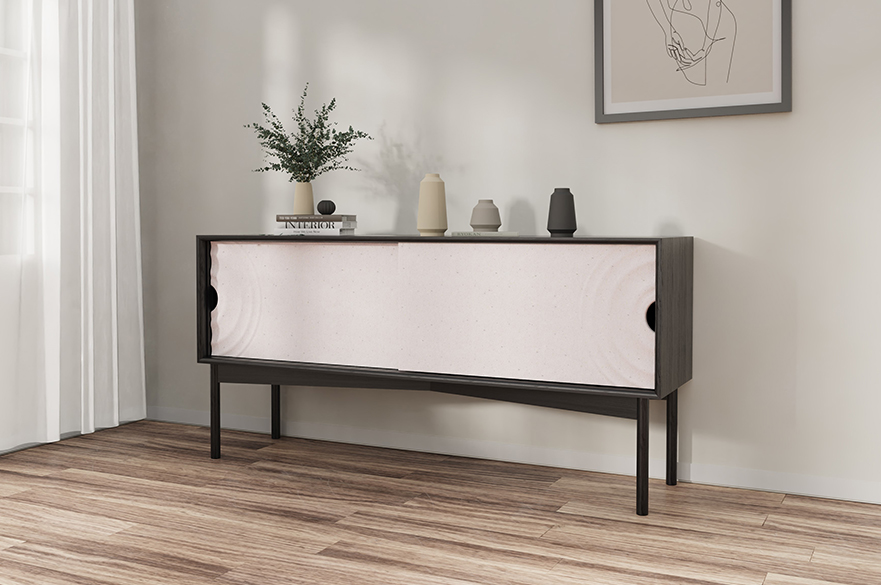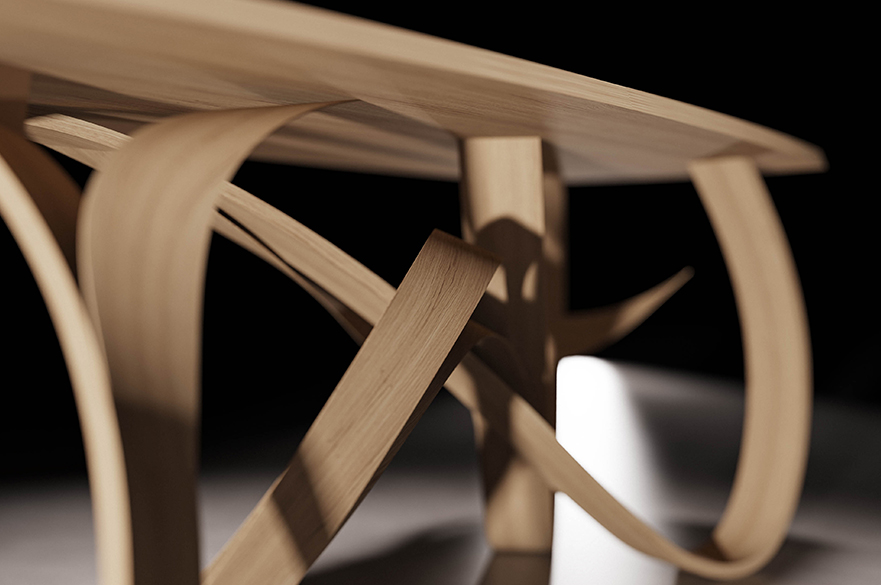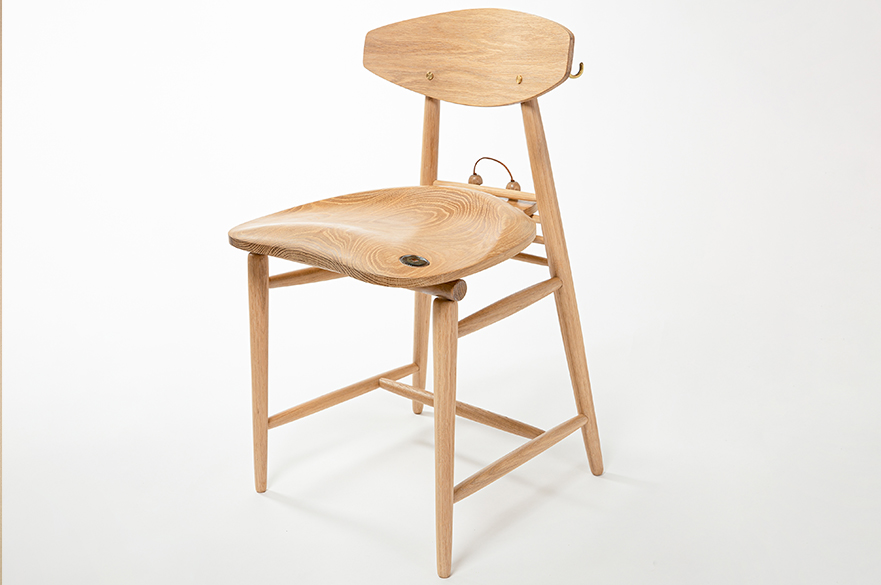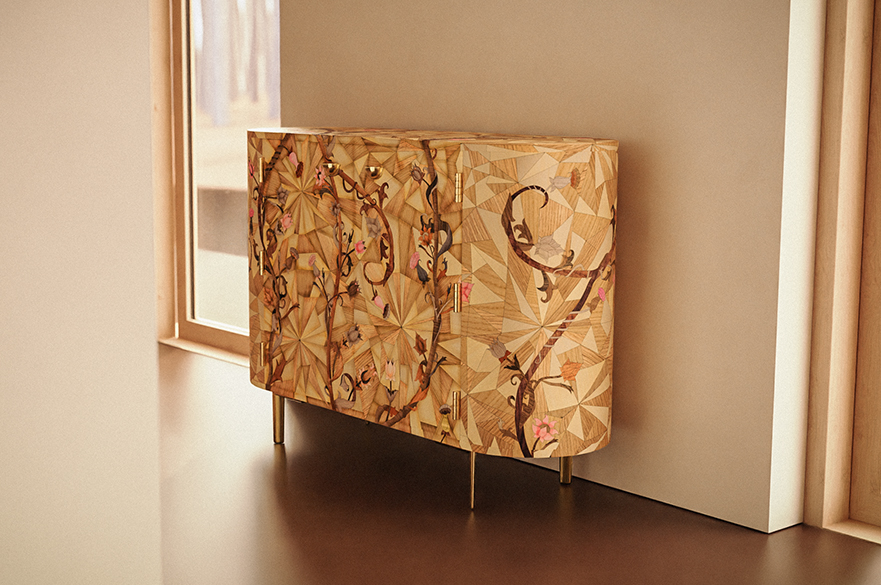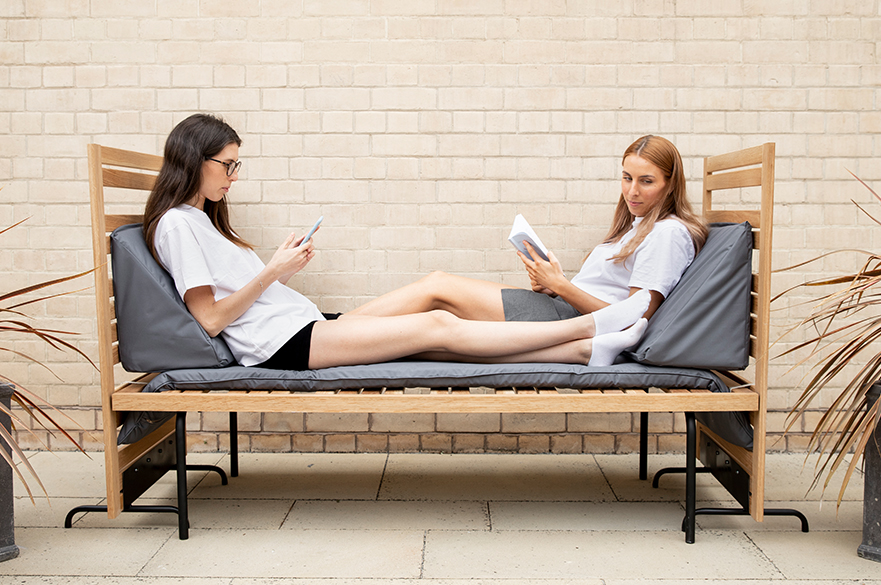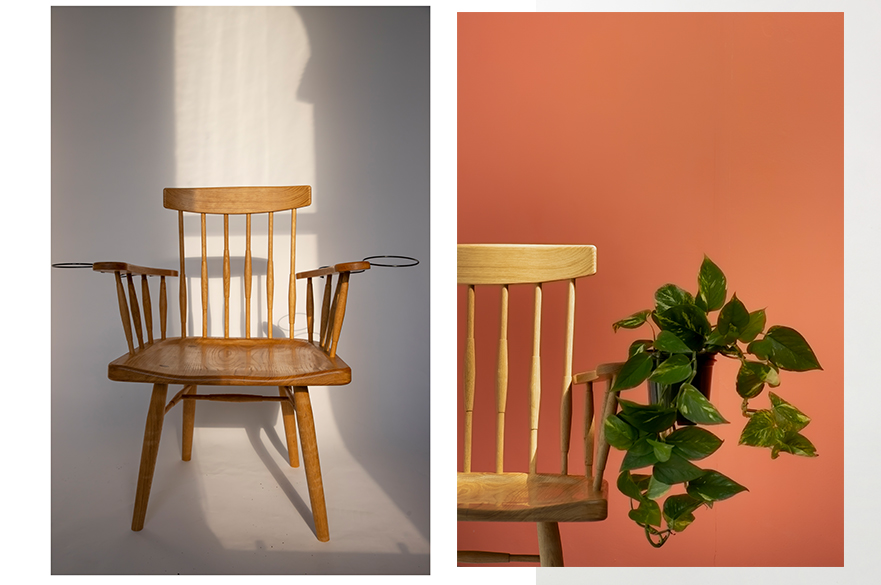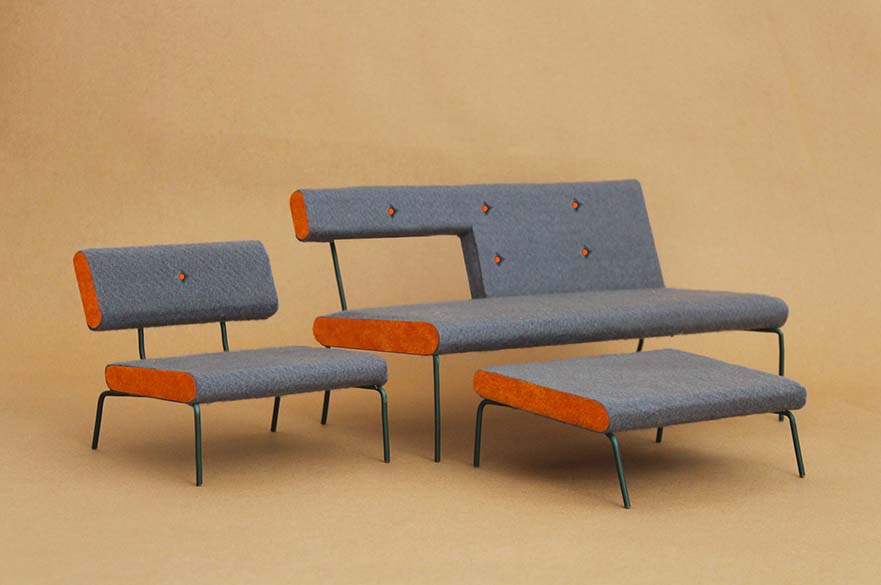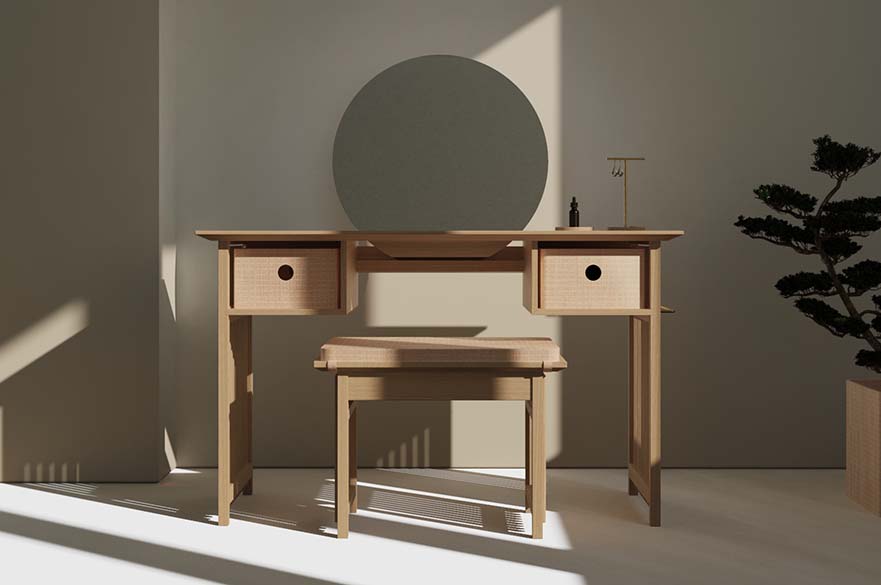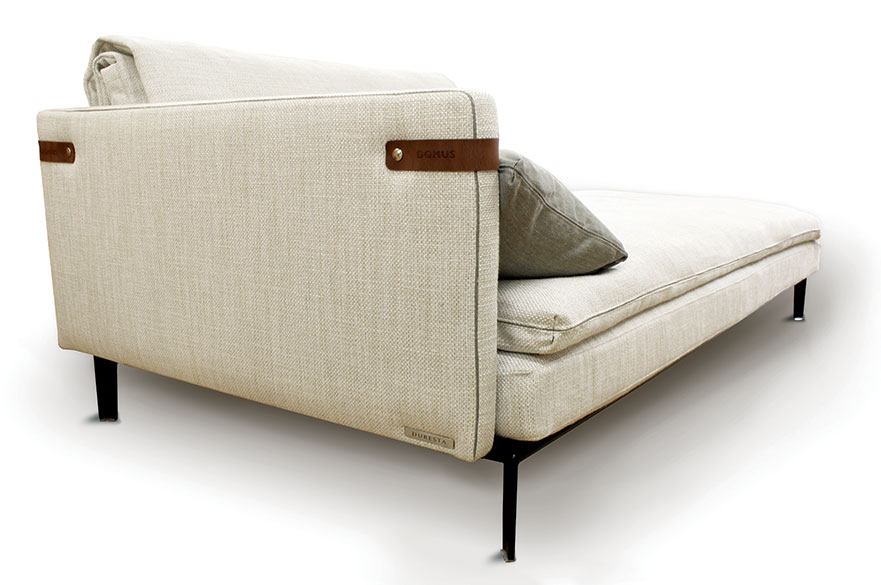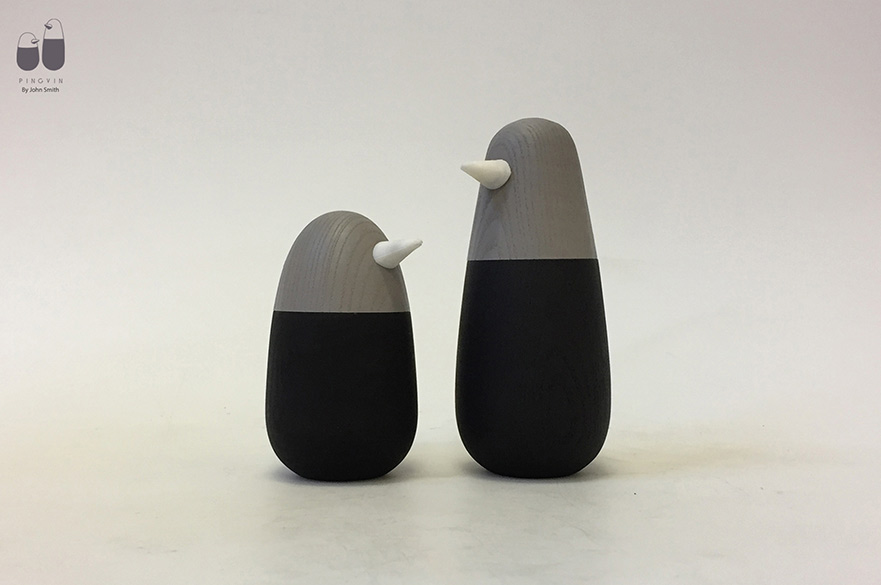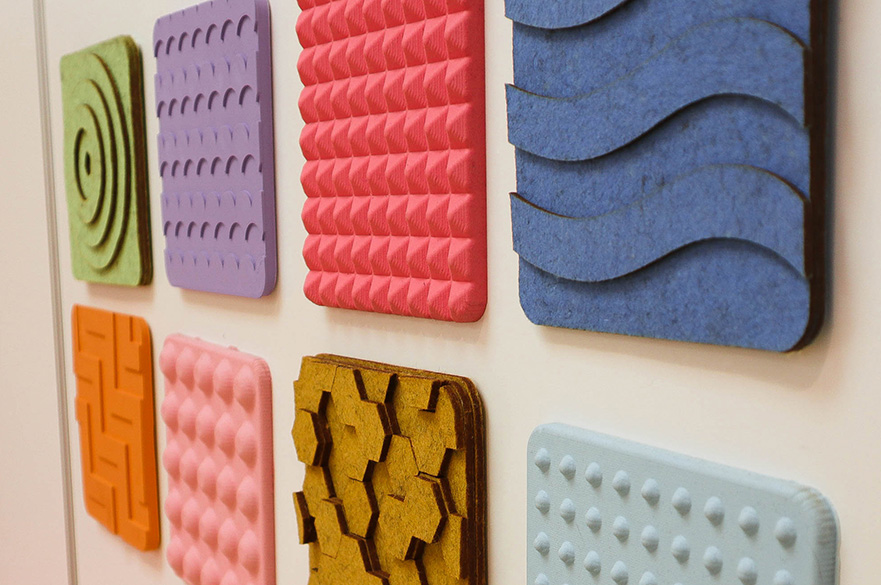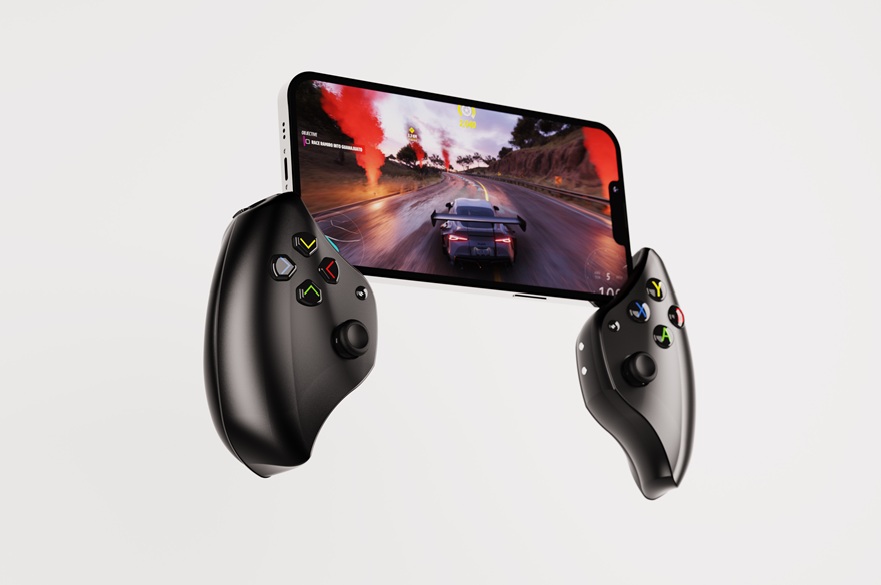This course is in Clearing
Offers from 80 tariff points
About this course
Embark on a journey of creativity with our Furniture and Product Design course. Explore crafting innovative products for diverse markets, striking a balance between commercial and conceptual work. Immerse yourself in a hands-on, empirical approach that emphasises designing through making, fostering experimentation with materials and processes.
We'll explore function, form, and the relationships we forge with the everyday objects with which we live. Alongside technical skills like sketching, model-making, and prototyping, we’ll look at key human issues of ethically responsible design, analyse the ways that our lifestyles are changing and how this impacts consumer choice, and experiment with innovative means of furniture and product production. You’ll test your skills across live projects, and you can even complete a year-long work placement, throwing yourself into the cutting edge of real-world industry.
We don’t produce cookie-cutter designers. Our students graduate as distinct individuals — some become successful freelancers, and others secure diverse roles with companies like Habitat, John Lewis, DFS, and The Design Council. Some are designer-makers; others become journalists and curators. By exploring your craft, developing your own design identity, and making the most of some genuinely unique opportunities, you’ll be a stand-out prospect in the world of design.
Explore the work of our graduating students in our Student Showcase.
Compare our courses to find out how this course differs from BSc (Hons) Product Design and BA (Hons) Product Design.
Main image: Joe Cassidy, BA (Hons) Furniture and Product Design student.
5
What you’ll study
Dive into the world of furniture and product design. Explore emerging trends and discover your unique creative voice through hands-on, collaborative projects. Build lasting connections with your peers and industry professionals while enjoying the freedom to develop your personal approach. Reflect on your motivations and see how your skills can adapt across various fields, from innovative furniture design to bespoke jewellery-making, in a supportive and dynamic environment.
Year One
- Introduction to Design (20 credit points)
- Design Tools, Materials and Production (20 credit points)
- Design Context, Identity and Sustainable Responsibility (20 credit points)
- Design through Inquisitive Making (60 credit points)
Year Two
- Professional Practice (20 credit points)
- Advanced Design Tools, Materials and Production (20 credit points)
- Sustainability, Materials & Processes (20 credit points)
- Elective Design Project (40 credit points)
- Exploring Materials and Processes (20 credit points)
Year Three
- Placement
Final Year
- Exploration & Context (20 credit points)
- Commercial Project (20 credit points)
- Self-Directed Project (80 credit points)
Introduction to Design (20 credit points)
- You'll develop essential design skills, focusing on safe studio and workshop practices.
- You’ll master essential design communication skills, using a mix of 2D and 3D media. From sketching to basic modelling and presentation techniques, you'll gain the creative tools to bring your design ideas to life.
- This module will boost your design skills, spark creativity, and help you solve real-world problems. You'll learn to think critically, reflect on your work, and tackle modern design challenges.
Design Tools, Materials and Production (20 credit points)
- On this module you’ll enhance your practical design skills with hands-on experience in sketching, 3D modelling, Computer Aided Design (CAD) and prototyping, all while learning safe studio practices.
- You’ll explore key design techniques and presentation skills, from digital and written communication to effective time management and peer presentations.
Design Context, Identity and Sustainable Responsibility (20 credit points)
- On this module you will explore design in context and the role of design in society to develop your own unique design identity through various approaches and historical insights.
- You’ll gain critical awareness, participate in debates, seminars, and presentations to enhance your critical thinking.
- Investigating sustainable practices and key theories will shape your understanding of your future role as a responsible designer.
Design through Inquisitive Making (60 credit points)
- This module focuses on developing your understanding of the design process with real-life projects and industry briefs, gaining hands-on experience.
- You’ll develop confidence through material experimentation, challenging your creativity and integrating theory with practice.
Professional Practice (20 credit points)
- Explore design’s past, present, and future. Get hands-on experience through industry insights and discussions, helping you map out your future in the design world with practical, real-world knowledge.
- Develop your critical and analytical skills and learn essential topics like design management, sustainability, and commercial awareness. Understand the wider design industry, including the roles and responsibilities of designers, manufacturers, and consumers, preparing you for a successful career.
Advanced Design Tools, Materials and Production (20 credit points)
- You’ll further develop your design techniques and processes, focusing on future and product design to refine your creative approach.
- Build your confidence and communication skills as you gain hands-on experience with materials and production, while improving your portfolio, CV and industry communication skills.
- Master design methods and media to articulate and express your ideas clearly, preparing you for your future design career.
Sustainability, Materials & Processes (20 credit points)
- This module will advance your skills and build on your first-year knowledge to gain confidence in future and product design, exploring contemporary issues and global contexts while taking creative risks.
- You’ll work on live industry briefs with real deadlines, tackling key design challenges like materials ergonomics and sustainability, whine producing professional-level concepts and prototypes.
- Engage with client and commercial needs through live projects, enhancing your understanding of sustainable practice and diverse design models such as freelancing and activism.
- Working on your creative development, you’ll focus on insightful research, material exploration and prototyping. You’ll refine your problem-solving skills and tackle complex design challenges.
Elective Design Project (40 credit points)
- On this module, you’ll choose from a range of exciting themes and work on a project you’re passionate about. You’ll develop and build on the key skills you’ve gained so far.
- You will get hands-on with design-focused tasks like selecting materials, prototyping, and testing. Show off your independence and risk-taking with practical work that’s clearly communicated through visuals, writing, and presentations.
Exploring Materials and Processes (20 credit points)
- Explore and research a topic that sparks your interest and create a research portfolio to showcase your findings and ideas.
- You’ll develop a detailed plan for your project, focusing on direction, choices and the design work you’ll produce later.
- Experiment with materials and techniques, using your curiosity to uncover new, sustainable design possibilities.
Placement Opportunity
- In your third year, you'll have the opportunity to take a year-long, full-time placement. This year in industry will offer you hands-on experience, adding invaluable knowledge and skills to your CV. Many students return to their placement company after graduation, having developed a useful network of contacts within the industry.
- Recent placement destinations have included Fritz Fryer Lighting, Spiral Product Design, Sawaya & Mironi (Milan), Modus Furniture, Object Design and more, working in roles such as trainee designer, CAD/CAM technician, junior designer and planner, amongst more. The majority of their roles include salaries, with some students earning up to £18,000 for their year.
- Successful completion of the placement year leads to an extra qualification – the Diploma in Professional Practice.
- You'll also have the opportunity to undertake a European Project Semester during your third year with one of our partner universities. This option allows you to spend half a year studying abroad, and the other half gaining work experience on placement. We've got links with Universities in Spain, France, Austria, The Netherlands and Germany.
Exploration & Context (20 credit points)
- This module allows you to dive into a topic you’re passionate about. Research and create a scoping document that highlights your key findings, setting the stage for your future design work.
- You’ll use this module to explore relevant subjects and set the foundation for your self-directed project.
Commercial Project (20 credit points)
- This module encourages you to explore real-world design challenges through dynamic, self-driven projects with live industry partners. Apply your skills to develop innovative solutions and see your work make an impact in the commercial world.
- Projects are set by industry or recognised student competitions. This has previously included brands like Habitat, Made.com, Starpack, Allermuir and Howdens.
Self-Directed Project (80 credit points)
- You'll explore, research, and create your own design concepts. Build your skills, develop your portfolio, and make a personal impact on contemporary design through self-regulated, innovative work.
We regularly review and update our course content based on student and employer feedback, ensuring that all of our courses remain current and relevant. This may result in changes to module content or module availability in future years.
Don’t just take our word for it, hear from our students themselves
Student Work
Practice makes perfect
How you're taught
You'll learn through a mix of:
- lectures - covering the key theories
- seminars - smaller-group sessions perfect for learning key skills and collaborative working
- studio projects - working both independently and as groups
- workshops - supported by our team, you’ll experiment with materials and facilities such as model-making and 3D printing
- live briefs - from industry and competitions.
A placement year may be taken between year 2 and year 3 of study.
Beyond scheduled sessions, embrace independent study—preparing for lectures, researching, completing coursework, and expanding your portfolio through directed reading. Benefit from the insights of external professional practitioners, ensuring a continual enhancement of your learning with real-world perspectives.
96% of BA (Hons) Furniture and Product Design sandwich students are positive about the level of academic support received on their course (NSS, 2024).
Our Product Design community
Dive into our dynamic Product Design community — a blend of creativity, support, and challenge. Collaborate seamlessly with classmates, tutors, and experts to shape your unique design identity from day one. Embrace teamwork to tackle diverse design activities, from idea experimentation in our studio to crafting CAD models and prototypes in our workshops. This environment is designed to inspire and prepare you for the creative challenges ahead in your studies and career.
Study trips
Field trips and study visits are an important part of your learning. Trips may include site visits and visits to practices, museums, exhibitions and events. Where a trip is mandatory it will be aligned to your modules and inform project work, and substantive costs – including travel and accommodation – will be paid for by the school.
Optional trips may also be organised which can provide additional opportunities to enhance your knowledge and experience. Optional trips will incur an additional cost of approximately £500 for participating students.
A valid passport and any associated visas will be required for trips outside of the UK.
Design studio
You'll benefit from dedicated studio space on the course. Our studio-based environment encourages experimentation with new methods, styles, and techniques, and pushes you to take your practice in any direction that motivates you. This approach reflects how the industry works and prepares you well for the collaborative approach that you'll practice throughout your career.
Live projects
As part of some modules, you'll work on live project briefs set by real industry clients. This can involve visits and workshops led by design teams from industry, and delivering presentations to them, providing the opportunity to showcase your skills and ability to potential employers. Previously our students have worked with John Lewis, Umbra, Isokon, Pearson Lloyd, Vitsoe, SCP and Morgan Contract Furniture.
Conversations on Design
We run a lecture series called 'Conversations on Design'. As part of this series practitioners from a range of industries come and deliver talks to students about their own practice, experiences in industry, and contemporary issues in their field. These talks are a great way to get first-hand insights into the workings of different organisations, practice and applications of design.
Competitions
As well as working on briefs as part of the course, we encourage you to enter external industry competitions to challenge yourself, broaden your skillset, and add to your CV and portfolio. Our students are consistently recognised in national awards. Recent award wins include the Arts Thread Global Design Graduate Show in collaboration with Gucci, the Made.com TalentLab prize presented at New Designers, and the Design Fresh: Product of the Year at the 100% Design Awards, and the Wood Awards.
How you're assessed
People excel in different ways, and we want everybody to have the best possible chance of success. You will be assessed through:
- coursework, this will make up the majority of your assessments and will consist of reports, logs, reflective journals, a portfolio of work, reviews and visual essays
- exhibitions, showcasing your work and project outcomes.
Careers and employability
Our course is designed to prepare you to succeed in the design industry, through work placements, working on real projects from industry, input from industry professionals, and regularly updated course content.
CSD accreditation
By enrolling in this programme, you'll gain complimentary student membership of CSD for the duration of your studies. This is the first step in a professional design career offering graduates exemptions in the application process, timescale and costs in achieving ‘Chartered Designer’ status.
Sandwich placement year
In your third year, grasp the opportunity for a year-long, full-time design placement to apply your skills in a real-world setting and explore career options. The skills developed in Years One and Two, along with a curated design portfolio, are complemented by support from our Employability team, assisting with opportunities, CVs, and interview preparation. This industry experience not only enhances your final year work but also establishes valuable connections, with some students returning to their placement companies post-graduation.
Students typically gain placements in product design companies across the UK and abroad. Recent destinations have included: deVOL Kitchens, 2MZ & Pluck, Spiral Product Design,Whitemeadow Furniture and Philip Watts Designs.
Professional qualification
Successful completion of the 36 weeks leads to an extra qualification – the Diploma in Professional Practice, which will further enhance your CV.
Where do Product Design graduates from NTU work?
NTU has a strong product design alumni community, with many graduates working in senior positions in leading national and international companies.
Recent graduate destinations include: G-Plan, John Lewis, Next, Benchmark, Nestlé, FBC London, Object Design, DFS, Roundhouse Design, Kitchen Architecture.
Our Employability team
Our expert Employability team will work closely with you at every stage of your career planning, providing personal support and advice. You can benefit from this service at any time during your studies, and for up to three years after completing your course.
NTU Enterprise
You'll also have the opportunity to turn your ideas into a viable business with help from NTU Enterprise, NTU's purpose-built Centre for Entrepreneurship and Enterprise, a support centre to help students create, develop and grow their own businesses.
Final Year Showcase
Check out our NTU Design Industries Virtual Student Showcase, an online exhibition celebrating the work of our graduates.
Keep up to date with our current Final Year Product Design student work on Instagram @NTUDI!
What our students are doing now
Review: NTU's 2025 Student Showcase
A review of the 2025 NTU Student Showcase which is hosted by the School of Architecture, Design and the Built Environment
NTU Product Design Students Success at New Designers 2024
NTU Product Design Students & Graduates Exhibit At The Engineering Design Show 2023
Campus and facilities
Studio space
Our Arkwright studio is a big, open, creative space where you'll spend a lot of your time as a Furniture and Product Design student. This is where you'll collaborate, undertake group and individual work, sketch, develop projects and soft modelling, and have presentations and critique sessions. Fitted with plenty of desk space and computers with all the software you need, you'll be well equipped and supported by our academic and technical teams.
Specialist facilities
At the University's City Campus, you'll have full access to our range of specialist equipment and spaces based in our Arkwright and Maudslay buildings. You'll be supported by a team of expert technical staff who will teach you to maximise the use of our resources and facilitate your development as a designer.
You'll benefit from our dedicated studios and workshop facilities, and full IT and CAD suites.
Specialised equipment includes the following:
- Rapid prototyping modellers: these machines quickly create a 3D object from a virtual computer model using a highly advanced laser process.
- Waterjet cutter: the latest generation precision technology capable of cutting up to 150mm in almost any solid material such as glass, steel, granite, marble, aluminium and rubber.
- a CNC (computer-numerical control) router and laser and plasma cutters.
- Bandsaw machines, lathes and circular saws to cut a range of materials including wood, foam, plastics and metal.
- Sanding machines, used to prepare surfaces and furniture for a high quality finish.
Access to our workshops and labs
Enjoy scheduled access to well-equipped workshops and labs throughout your academic journey, tailored to meet project-specific needs. Additionally, our studio spaces are available for daily bookings, offering flexibility to accommodate your creative workflow. Outside timetabled hours, select machinery remains accessible, with priority given to timetabled students, but open to all when space permits.
Dedicated resource centre
Students in the School of Architecture, Design and the Built Environment have access to a dedicated resource centre. This centre, based in the Maudslay building, enables students to undertake private study in a facility equipped with computers, large format plotters and desk space, together with the latest, and archived, journals and publications.
Entry requirements
This course is in Clearing
Looking for a place in Clearing? We are accepting application and would love to hear from you!
UK students
This course is in Clearing
Looking for a place in Clearing? We are accepting applications and would love to hear from you!
Clearing requirements
From 80 UCAS tariff points from up to 4 qualifications.
To discuss our entry requirements and see what we can offer you, call us now on +44 (0)115 848 6000. Alternatively, if you already have your qualifications, apply online via our Clearing Application form.
Preparing for results day? Beat the queue and sign up for NTU Priority for up-to-date information about all things Clearing. You’ll get an offer ahead of Clearing, subject to you achieving the required grades on results day.
Additional requirements:
To find out what qualifications have tariff points, please use our tariff calculator.
Additional requirements for UK students
There are no additional requirements for this course.
Contextual offers
If you don’t quite meet our entry requirements, we might be able to make you a lower offer based on a range of factors, including your background (such as where you live and the school or college you attended), your experiences and your individual circumstances (you may have been in care, for example). This is called a contextual offer, and we get data from UCAS to help make these decisions. We do this because we believe everyone with the potential to succeed at NTU should have the opportunity to do so, no matter what barriers you may face.
Meeting our entry requirements
Hundreds of qualifications in the UK have UCAS Tariff points attached to specific grades, including A-levels, BTECs, T Levels and many more. You can use your grades and points from up to four different qualifications to meet our criteria. Enter your predicted or achieved grades into our Tariff calculator to find out how many points your qualifications are worth.
Other qualifications and experience
NTU welcomes applications from students with non-standard qualifications and learning backgrounds, either for year one entry or for advanced standing beyond the start of a course into year 2 or beyond.
We consider study and/or credit achieved from a similar course at another institution (otherwise known as credit transfer), vocational and professional qualifications, and broader work or life experience.
Our Recognition of Prior Learning and Credit Transfer Policy outlines the process and options available for this route. If you wish to apply via Recognition of Prior Learning, please contact the central Admissions and Enquiries Team who will be able to support you through the process.
Getting in touch
If you need more help or information, get in touch through our enquiry form.
International students
This course is in Clearing
Looking for a place in Clearing? We are accepting applications and would love to hear from you!
Clearing requirements
From 80 UCAS tariff points from up to 4 qualifications.
To discuss our entry requirements and see what we can offer you, call us now on +44 (0)115 848 6000. Alternatively, if you already have your qualifications, apply online via our Clearing Application form.
Preparing for results day? Beat the queue and sign up for NTU Priority for up-to-date information about all things Clearing. You’ll get an offer ahead of Clearing, subject to you achieving the required grades on results day.
Other requirements
English language requirements: See our English language requirements page for requirements for your subject and information on alternative tests and Pre-sessional English.
Additional requirements for international students
If you need help achieving the academic entry requirements, we offer a Foundation preparation course for this degree. The course is offered through our partner Nottingham Trent International College (NTIC) based on our City campus.
English language requirements
View our English language requirements for all courses, including alternative English language tests and country qualifications accepted by the University.
If you need help achieving the language requirements, we offer a Pre-Sessional English for Academic Purposes course on our City campus which is an intensive preparation course for academic study at NTU.
Other qualifications and experience
If you have the right level of qualifications, you may be able to start your Bachelors degree at NTU in year 2 or year 3. This is called ‘advanced standing’ entry and is decided on a case-by case basis after our assessment of your qualifications and experience.
You can view our Recognition of Prior Learning and Credit Transfer Policy which outlines the process and options available, such as recognising experiential learning and credit transfer.
Sign up for emails
Sign up to receive regular emails from the International Office. You'll hear about our news, scholarships and any upcoming events in your country with our expert regional teams.
Getting in touch
If you need advice about studying at NTU as an international student or how to apply, our international webpages are a great place to start. If you have any questions about your study options, your international qualifications, experience, grades or other results, please get in touch through our enquiry form. Our international teams are highly experienced in answering queries from students all over the world.
Policies
We strive to make our admissions procedures as fair and clear as possible. To find out more about how we make offers, visit our admissions policies page.
